- Home
- Blake Pierce
Waiting (The Making of Riley Paige—Book 2) Page 11
Waiting (The Making of Riley Paige—Book 2) Read online
Page 11
Monster masks.
She tried to think of how those masks might connect with carnivals and clowns.
Nothing came to mind.
When Crivaro parked in front of the theater, Riley saw that the movie currently playing was The Philadelphia Story, an old Katharine Hepburn romantic comedy. She suspected the management had switched to a more pleasant movie right after the murdered woman was found nearby.
Crivaro, McCune, and Riley got out of the car and walked around the corner into the alley. Night had fully set in, but there was plenty of light spilling into the dank alleyway from the street lamps.
Beside a dumpster was the taped outline of the woman’s corpse.
Riley crouched down for a closer look.
With a shudder, Riley flashed back to the photo she’d seen of the victim alongside this very dumpster—made up just like Janet Davis and wearing the same kind of puffy colorful suit. It was easy to imagine the victim splayed in front of her right now.
And it was easy to imagine what the killer had felt like crouching over her, savoring his handiwork.
A sharp tingle passed through her body.
Again, she felt a sense of unspeakable cruelty and sadism.
Her stomach turned at this renewed sense of connection with the killer. She was afraid she was going to be violently sick.
She thought back to when she’d looked through the two-way mirror at Gregory Wertz. She tried to match Wertz’s face with that of the man whose presence she sensed right now—a vicious killer who had gloated over Margo Birch’s body right here where she was crouching.
She couldn’t do it.
Instead, her connection with the killer’s mind vanished like a popped soap bubble.
She heard Crivaro say …
“I don’t see anything interesting here. You’re right, McCune. It’s time to call it quits for tonight. Let’s all go home. We’ll start again tomorrow.”
Riley rose shakily to her feet, lagging behind Crivaro and McCune as they walked back toward the car.
She hurried to catch up with Crivaro and whispered in his ear …
“Wertz isn’t the killer. I’m sure of it now.”
Crivaro simply grunted. Riley had no idea what that grunt might mean.
Did Crivaro agree with her hunch, or was he dismissing her input altogether?
She felt a surge of deepening horror about that mind she’d sensed …
He’s still out there.
And he’s going to kill again.
CHAPTER SIXTEEN
Very early the next morning, Riley’s cell phone rang while she was in the kitchen eating cereal. When she saw that the call was from Agent Crivaro, she almost dropped the phone in her eagerness to answer. Maybe something exciting was already in the works today.
“Sweeney, I’ve got something I want you to do,” Crivaro said.
Riley’s excitement rose. He must be going to assign her a new task.
“What is it?” she asked, trying to sound calm.
“There’s going to be a lecture in the Hoover Building auditorium this morning. I want you to be there.”
A lecture, Riley thought, feeling deflated. But she didn’t comment.
Crivaro continued, “An old colleague of mine, Elliot Flack, is going to be talking to interns about the Behavioral Analysis Unit. I want you to hear it.”
Riley’s hopes sank. She’d already known about that lecture, but hadn’t planned on attending. After all, she was working a real case. She’d expected to spend today with Crivaro and McCune.
When she didn’t reply, Crivaro said, “Hello? Are you still there?”
“Yeah, I’m still here,” Riley said.
She didn’t know what else to say. Crivaro certainly wouldn’t like it if she told him she wasn’t interested in the lecture.
After a pause, Crivaro said, “Look, if you get through this program and keep on going, it’s as likely as not that you’ll wind up going into the BAU. I want you to know more about it.”
“OK,” Riley said. She realized she sounded unenthusiastic, but Crivaro didn’t seem to notice.
“Great. I’ll talk to you later.”
Before he could hang up, Riley said, “Wait a minute, Agent Crivaro. Is there any news about the case?”
She could hear him scoff.
“Nothing new this early in the morning. What were you expecting? Look, don’t worry about the case. McCune and I are on it.”
Crivaro ended the call without another word.
Riley sat staring at the phone in disappointment.
Of course, she told herself, he’s right.
What Crivaro was saying made sense. She really ought to attend a lecture that focused on the BAU. She really didn’t know much about it, and it sounded like an interesting branch of the FBI. It might even be her future career.
She remembered Crivaro’s words when he’d talked her into joining the summer intern program …
“You’d make a very fine BAU agent.”
That made Riley feel a little better. But she still couldn’t help wondering yet again whether Crivaro was brushing her off.
Did this have anything to do with what she’d said to him when they’d left the alley behind the theater last night?
“Wertz isn’t the killer. I’m sure of it now.”
Had she put him off by being so presumptuous?
Maybe I should have just kept my mouth shut.
But how could she, when her gut feeling had been so powerful? Weren’t her intuitions the main reason Crivaro had gotten interested in her in the first place?
But was he having second thoughts now?
Had he decided to leave her out of the case from now on?
She had no way of knowing.
Riley tried to push such thoughts out of her mind as she finished her cereal and coffee. Then she crept quietly into the bedroom so as not to wake up Ryan. She silently collected her clothes and ducked into the bathroom.
After a quick shower, she put on a makeshift pantsuit—a clean pair of slacks and a jacket. She didn’t have a lot of the sort of professional clothes expected of an FBI intern, so she made a mental note that she had to do laundry soon. Fortunately, the building’s laundry room was right here in the basement, down the hall from their apartment.
When she came out of the bathroom, Ryan was sitting up in bed. He looked barely awake.
“Off so soon?” he said, rubbing his eyes.
“Yeah, sorry to rush,” Riley said, kissing him on the cheek.
“You got in kind of late,” Ryan complained. “You didn’t have a lot to say.”
“I know. It had been a long day. I was really tired.”
Riley hesitated. She didn’t want to talk about the clown-painted dead woman and the bereaved family. At least not until she had more time to explain everything.
Ryan yawned and stretched, and Riley remembered that she’d found him hunched over books and papers when she’d gotten home.
“You were kind of preoccupied yourself,” she said.
“I guess I was,” Ryan said with a yawn. “I got sent home with a lot of work. It was a big day.”
He looked up at her. “Are you having problems with your classes?”
Riley was startled by the word …
Classes!
Ryan still had no idea how she’d spent yesterday, or for that matter the day before yesterday. What would he think if he knew all that she’d really been doing? How could she tell him?
For the time being, Riley could think of nothing to do except evade the question.
“We’ll talk when I get home,” she said.
She gave him another quick kiss and started to walk away.
“Hey,” he said, his voice stopping her.
She turned toward him and saw a worried look on his face.
He said, “You’ve got to take care of yourself, you know.”
“I know,” Riley said, “I am.”
He was frowning now and she didn’t want to g
ive him a chance to ask for details about her work.
“I’ll be home early tonight,” she said cheerfully. “I’ll fix dinner. Don’t worry. Bye.”
Riley hurried on out of the apartment, feeling confused and a little guilty.
She and Ryan hadn’t had time to talk seriously for a couple of days. She’d told him about some of her problems with Crivaro and about some of her own doubts.
But so much had happened since then!
She would make sure they had time to talk tonight.
During the two-block walk to the metro stop, she started feeling better.
It seemed a shame that Ryan felt bad about them living here. True, the neighborhood was a little seedy, but it was visibly upgrading. And even at this early morning hour, people were bustling around the sidewalks and the streets were heavy with traffic.
When she got onto the subway train, it was crowded with other people on their way to their daily routines.
Her early years in rural and small-town Virginia seemed so far away. And she found that she really liked the change. She felt like she was really starting to get in step with the rhythms of a big, exciting city.
Riley also felt a renewed sense of determination to succeed in the intern program.
I’ve really got to make the most of this great opportunity, she thought.
*
As Riley walked into the auditorium, she noticed that many of the interns who were already seated were staring at her. She felt their gaze even more intensely than she had during her first day here. Although she’d had no contact with them while she was working with Crivaro and McCune, it was as if their curiosity about her had grown.
What’s going on? she wondered.
She took her seat just as the lecturer was stepping up to the podium. At that moment, someone sat down in the seat beside her. She turned and saw that it was John Welch, the good-looking guy she’d suspected of hitting on her the day before yesterday.
He whispered to her, “We’ve got to talk when this is over. You’ve got to tell me all about it.”
All about what? Riley wondered.
Then she realized …
Oh my God!
Word had gotten around among the interns about her involvement with the “Clown Killer” case. That’s why some of them seemed to be especially interested in her today. But what exactly had they heard?
And what was she going to tell John about it?
She was relieved when the man at the podium shuffled some notecards and started talking.
“Good morning, folks,” he said in a gruff but cheerful voice. “I’m Special Agent Elliot Flack, and I’m here to talk to you about the Behavioral Analysis Unit.”
Then with a self-effacing chuckled he added, “I’m not much of a public speaker. Getting into the brains of bad guys is more my thing. I hope I don’t bore you.”
His remark stirred up a bit of laughter in his audience. Obviously nobody expected his talk to be boring.
And it certainly wasn’t.
Flack had a hard-as-nails demeanor that reminded Riley of Agent Crivaro. But he also had a dry and sometimes dark sense of humor.
He began by talking about the beginnings of the BAU back in 1972, with the founding of the FBI’s Behavioral Sciences Unit. Back then criminal profiling had seemed a radical and even somewhat crazy idea. The early proponents of profiling did what was widely considered to be unthinkable—they spent hundreds of hours talking with the most vicious killers currently incarcerated, trying to understand their minds.
“Ah, the 1970s,” Flack said with a certain sly relish. “That was a rich time to study psychopathic killers.”
Flack pointed to the screen in front of the room and said, “Consider this guy for example.”
Suddenly, an image came up on the screen that made Riley’s heart jump up into her throat.
It was the face of a clown, painted stark white with exaggerated, brightly colored features, especially a huge, red, smiling mouth.
Riley remembered the term Danny Casal had used for such a clown …
A “grotesque whiteface.”
It was the same sort of makeup she had seen on the two murdered women—the one in the field and the other in a photograph.
Riley wondered …
What on earth is he going to tell us about?
CHAPTER SEVENTEEN
Riley wondered for a moment if she might be dreaming.
But she knew she wasn’t.
She really was sitting in a lecture hall looking at a disturbing image, a face that strongly resembled two murder victims.
It was the painted face of a clown.
As she waited for Agent Flack to speak again, her thoughts raced. Was he going to talk about the very murders she’d been helping Crivaro and McCune investigate?
Flack walked to the side of the screen with a pointer.
He said, “The fellow you’re looking at was known as ‘Pogo the Clown,’ or sometimes ‘Patches the Clown.’ He was a generous soul who performed at children’s parties, and also for at charity events and for hospitalized children. He was well-liked by most people who knew him.”
Flack paused for a moment, then added …
“He also raped, tortured, and murdered some thirty-three boys and young men between 1972 and 1978. He kept most of their bodies hidden in a crawlspace under the floor of his own home. People called him the ‘Killer Clown.’”
The whole audience gasped; so did Riley.
“Killer Clown!”
This was not the face of a victim. It was the face of a killer.
Even so, the name was close—too close—to the nickname that was circulating about the recent murders—the “Clown Killer.”
A series of images flashed across the screen—the killer’s mug shots, photographs of his youthful victims, and of the crawlspace where the bodies had been discovered.
Flack continued, “His name was John Wayne Gacy. And once he was apprehended, he became a subject of intense study by pioneering profilers. They got to spend a long time talking to him. Although he was convicted in 1980, he wasn’t executed until 1994.”
Flack turned away from the screen and looked out over his listeners.
“Any questions so far?” he asked.
Riley’s hand shot right up, and Flack nodded to her.
She asked, “What did the profilers manage to learn about him? I mean …”
She paused, then added, “Why did he do … the things he did?”
Flack’s lips formed into a bitter half-smile.
“That’s a good question. I wish I could give you a clear-cut answer. It’s no surprise, I guess, that he had a difficult childhood. His father was a brutal alcoholic who beat him and berated him. But how much does that explain? Lots of people have rough childhoods and cruel fathers, and not all of them turn out to be sexual predators and killers.”
Flack shrugged and added …
“My own dad wasn’t the nicest guy in the world.”
Nor was mine, Riley thought.
And she’d never felt any desire to inflict pain on anybody, much less kill people.
And yet …
She shuddered at the thought of how easy it was getting to be for her to get inside a killer’s mind.
Did her own childhood have anything to do with that?
Flack brought up another slide with a crude oil painting of a clown.
He said, “While in prison, he painted this picture of himself as ‘Pogo.’ He gave it to one of the profilers who spent many hours interviewing him, with this written on the back …”
Another photo showed Gacy’s handwritten message …
“Dear Bob Ressler, you cannot hope to enjoy the harvest without first laboring in the fields. Best wishes and good luck. Sincerely, John Wayne Gacy, June 1988.”
After reading the message aloud, Flack continued …
“When Bob asked Gacy what the message meant, Gacy said to him, ‘You’re the criminal profiler. You figure it out.’�
�
Flack shrugged and said, “And I guess you could say that’s exactly what the BAU has been trying to do all along—figure out what makes monsters tick. We’ve learned a lot over the years, and we’ve gotten a lot better at tracking and apprehending those monsters. What we still can’t usually do is stop them before they act.”
He fell silent for a moment, then said, “And our work comes at a personal risk. The trick is to understand monsters without becoming a monster yourself. It isn’t always easy.”
Riley listened to the rest of his lecture with rapt fascination. She was surprised to learn that the very term “serial killer” wasn’t very old. It was coined sometime during the 1970s by Robert Ressler, the profiler Gacy had signed that picture for. Ressler had said he’d thought of the term because successive murders reminded him of “serial adventures,” short movies that he’d seen as a child on Saturday afternoons.
Each episode of those movies always ended in a cliffhanger, with the hero in extreme danger. Viewers had to wait for next Saturday’s episode to find out how the hero escaped death. Ressler had remembered the dissatisfaction he’d felt at the end of each episode—a dissatisfaction that didn’t lift when the hero survived, and that seemed to grow sharper with every episode. Maybe, he thought, killers who murdered successive victims were driven by the same sort of dissatisfaction.
When the lecture was over, Riley’s head was buzzing with thoughts and ideas. She sat there for a moment trying to absorb all that she’d heard.
She also felt eerily seized by frustration.
Somewhere today, probably right at that very moment, Crivaro and McCune were out searching for clues, either proving or disproving that Gregory Wertz was guilty of two ghastly murders …
And I’m missing it.
The thought worked itself inside her like a gnawing hunger …
Dissatisfaction.
Yes, that was what it was—a palpable dissatisfaction, like waiting for the next episode in a movie serial.
Was it the same kind of dissatisfaction that drove serial killers to commit their awful deeds?
If the same feeling drove murderers, what did that say about her?
What did it say about anybody who felt drawn to this kind of work?

_preview.jpg) Once Gone (a Riley Paige Mystery--Book #1)
Once Gone (a Riley Paige Mystery--Book #1)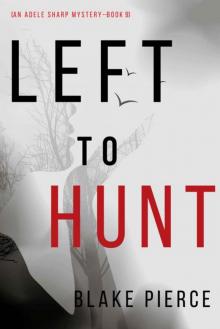 Left to Hunt (An Adele Sharp Mystery—Book Nine)
Left to Hunt (An Adele Sharp Mystery—Book Nine)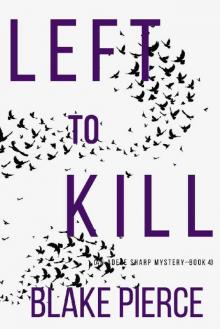 Left to Kill (An Adele Sharp Mystery—Book Four)
Left to Kill (An Adele Sharp Mystery—Book Four)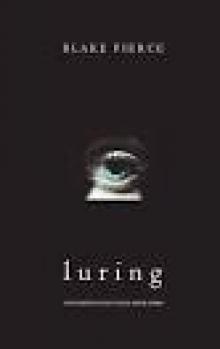 LURING
LURING If She Hid
If She Hid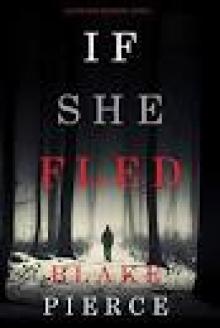 If She Fled
If She Fled Already Gone (A Laura Frost FBI Suspense Thriller—Book 1)
Already Gone (A Laura Frost FBI Suspense Thriller—Book 1) Vengeance in Vienna
Vengeance in Vienna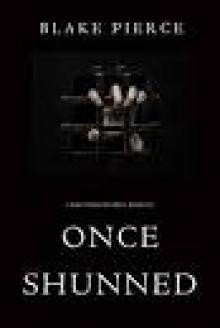 Once Shunned
Once Shunned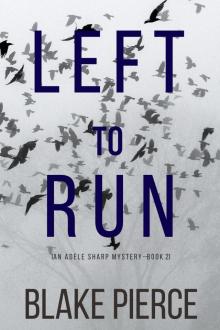 Left To Run
Left To Run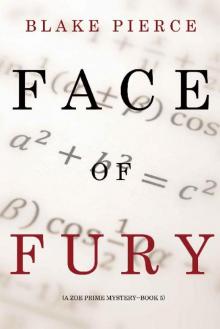 Face of Fury (A Zoe Prime Mystery--Book 5)
Face of Fury (A Zoe Prime Mystery--Book 5)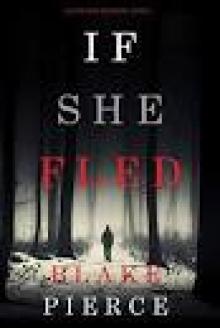 Blake Pierce - Kate Wise - 5 - If She Fled
Blake Pierce - Kate Wise - 5 - If She Fled IF SHE RAN
IF SHE RAN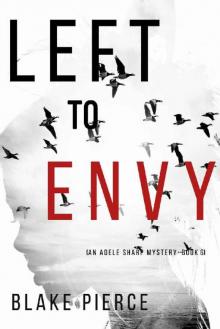 Left to Envy (An Adele Sharp Mystery—Book Six)
Left to Envy (An Adele Sharp Mystery—Book Six) Silent Neighbor
Silent Neighbor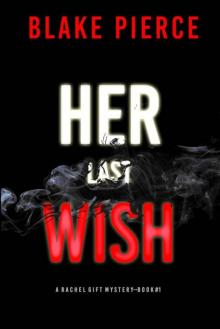 Her Last Wish (A Rachel Gift FBI Suspense Thriller—Book 1)
Her Last Wish (A Rachel Gift FBI Suspense Thriller—Book 1)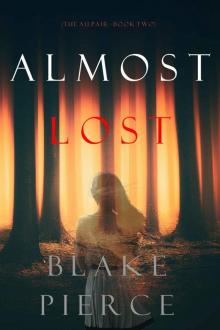 Almost Lost
Almost Lost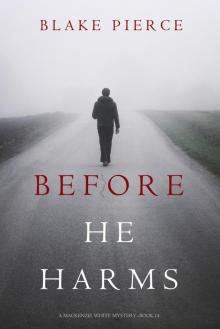 Before He Harms
Before He Harms Murder (and Baklava) (A European Voyage Cozy Mystery—Book 1)
Murder (and Baklava) (A European Voyage Cozy Mystery—Book 1)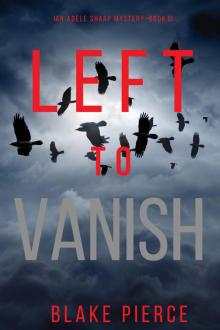 Left to Vanish (An Adele Sharp Mystery—Book Eight)
Left to Vanish (An Adele Sharp Mystery—Book Eight)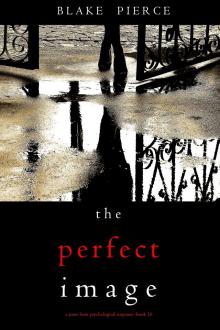 THE PERFECT IMAGE
THE PERFECT IMAGE The Perfect Affair (A Jessie Hunt Psychological Suspense Thriller—Book Seven)
The Perfect Affair (A Jessie Hunt Psychological Suspense Thriller—Book Seven)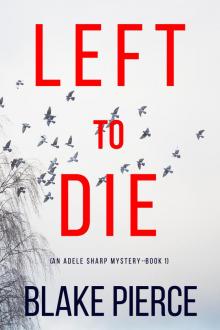 Left To Die
Left To Die BEFORE HE LAPSES
BEFORE HE LAPSES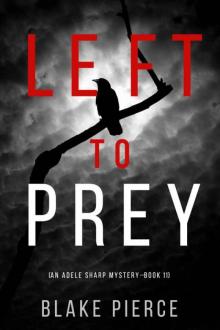 Left to Prey (An Adele Sharp Mystery—Book Eleven)
Left to Prey (An Adele Sharp Mystery—Book Eleven) The Perfect Neighbor (A Jessie Hunt Psychological Suspense Thriller—Book Nine)
The Perfect Neighbor (A Jessie Hunt Psychological Suspense Thriller—Book Nine)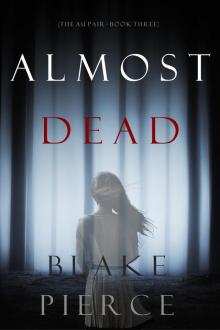 Almost Dead
Almost Dead The Perfect Wife
The Perfect Wife The Perfect Smile
The Perfect Smile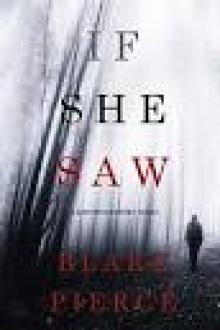 If She Saw
If She Saw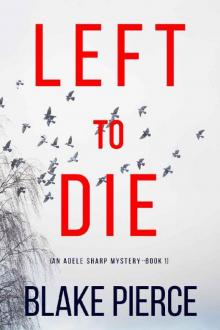 Left To Die (An Adele Sharp Mystery—Book One)
Left To Die (An Adele Sharp Mystery—Book One)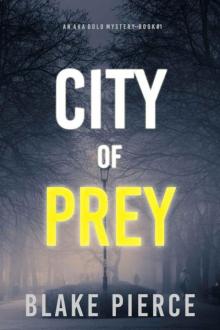 City of Prey: An Ava Gold Mystery (Book 1)
City of Prey: An Ava Gold Mystery (Book 1)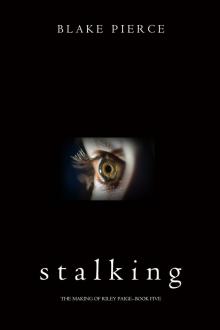 Stalking
Stalking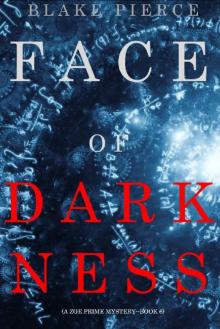 Face of Darkness (A Zoe Prime Mystery—Book 6)
Face of Darkness (A Zoe Prime Mystery—Book 6)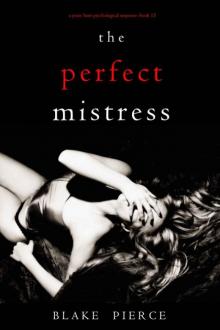 The Perfect Mistress (A Jessie Hunt Psychological Suspense Thriller—Book Fifteen)
The Perfect Mistress (A Jessie Hunt Psychological Suspense Thriller—Book Fifteen) Girl, Vanished (An Ella Dark FBI Suspense Thriller—Book 5)
Girl, Vanished (An Ella Dark FBI Suspense Thriller—Book 5) The Perfect Block
The Perfect Block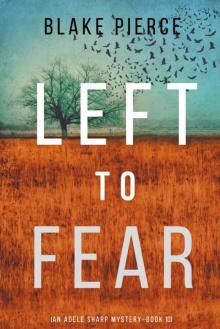 Left to Fear (An Adele Sharp Mystery—Book Ten)
Left to Fear (An Adele Sharp Mystery—Book Ten)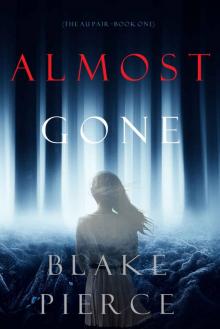 Almost Gone (The Au Pair—Book One)
Almost Gone (The Au Pair—Book One) The Perfect Facade (A Jessie Hunt Psychological Suspense Thriller—Book Twelve)
The Perfect Facade (A Jessie Hunt Psychological Suspense Thriller—Book Twelve) The Perfect Affair
The Perfect Affair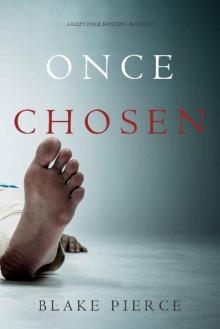 Once Chosen (A Riley Paige Mystery—Book 17)
Once Chosen (A Riley Paige Mystery—Book 17)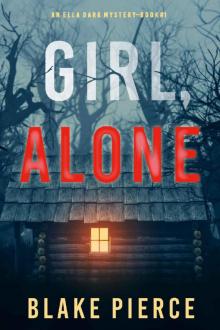 Girl, Alone (An Ella Dark FBI Suspense Thriller—Book 1)
Girl, Alone (An Ella Dark FBI Suspense Thriller—Book 1)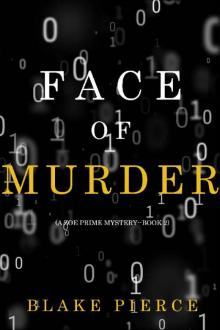 Face of Murder (A Zoe Prime Mystery—Book 2)
Face of Murder (A Zoe Prime Mystery—Book 2)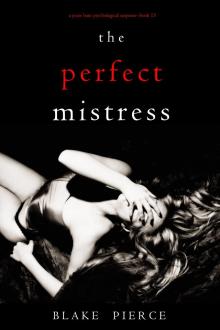 The Perfect Mistress
The Perfect Mistress Crime (and Lager) (A European Voyage Cozy Mystery—Book 3)
Crime (and Lager) (A European Voyage Cozy Mystery—Book 3)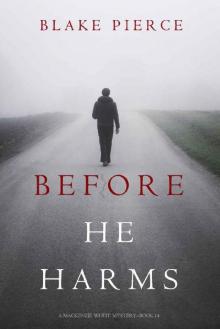 Before He Harms (A Mackenzie White Mystery—Book 14)
Before He Harms (A Mackenzie White Mystery—Book 14)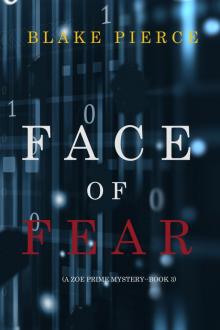 Face of Fear
Face of Fear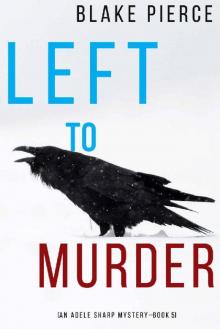 Left to Murder (An Adele Sharp Mystery—Book Five)
Left to Murder (An Adele Sharp Mystery—Book Five)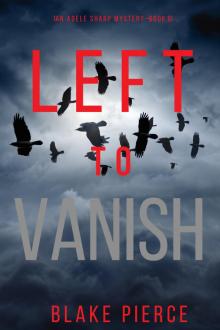 Left to Vanish
Left to Vanish The Perfect Secret (A Jessie Hunt Psychological Suspense Thriller—Book Eleven)
The Perfect Secret (A Jessie Hunt Psychological Suspense Thriller—Book Eleven) The Perfect Deceit (A Jessie Hunt Psychological Suspense Thriller—Book Fourteen)
The Perfect Deceit (A Jessie Hunt Psychological Suspense Thriller—Book Fourteen)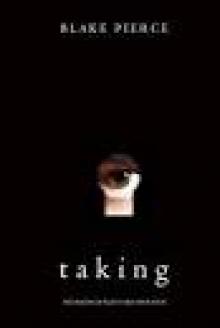 Blake Pierce - The Making of Riley Paige - 4 - Taking
Blake Pierce - The Making of Riley Paige - 4 - Taking Death (and Apple Strudel) (A European Voyage Cozy Mystery—Book 2)
Death (and Apple Strudel) (A European Voyage Cozy Mystery—Book 2) THE PERFECT HOUSE
THE PERFECT HOUSE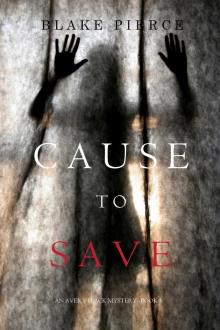 Cause to Save
Cause to Save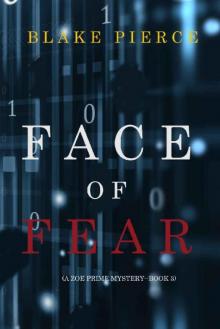 Face of Fear (A Zoe Prime Mystery—Book 3)
Face of Fear (A Zoe Prime Mystery—Book 3)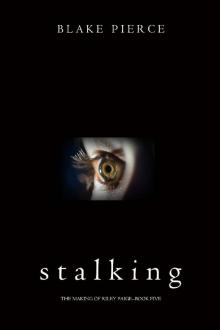 Stalking (The Making of Riley Paige—Book 5)
Stalking (The Making of Riley Paige—Book 5)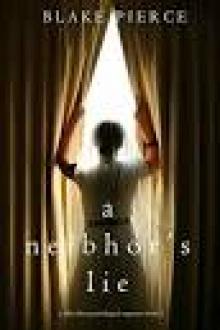 A Neighbor's Lie
A Neighbor's Lie The Perfect Neighbor
The Perfect Neighbor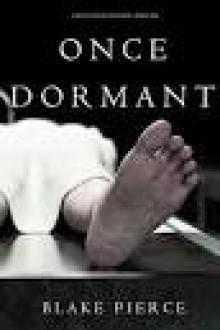 Once Dormant
Once Dormant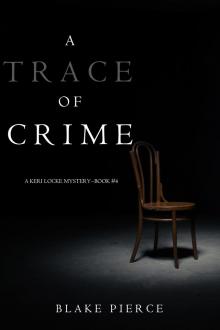 A Trace of Crime
A Trace of Crime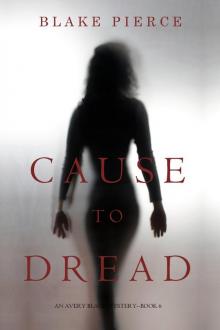 CAUSE TO DREAD
CAUSE TO DREAD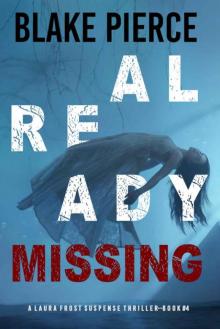 Already Missing (A Laura Frost FBI Suspense Thriller—Book 4)
Already Missing (A Laura Frost FBI Suspense Thriller—Book 4) Waiting
Waiting If She Knew
If She Knew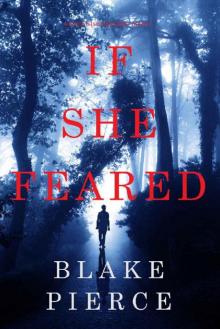 If She Feared (A Kate Wise Mystery—Book 6)
If She Feared (A Kate Wise Mystery—Book 6)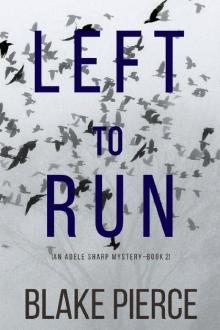 Left To Run (An Adele Sharp Mystery—Book Two)
Left To Run (An Adele Sharp Mystery—Book Two)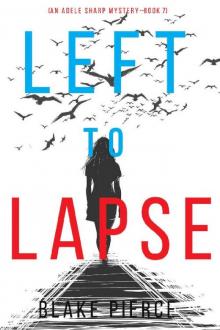 Left to Lapse (An Adele Sharp Mystery—Book Seven)
Left to Lapse (An Adele Sharp Mystery—Book Seven) If She Hid (A Kate Wise Mystery—Book 4)
If She Hid (A Kate Wise Mystery—Book 4) The Perfect Alibi (A Jessie Hunt Psychological Suspense Thriller—Book Eight)
The Perfect Alibi (A Jessie Hunt Psychological Suspense Thriller—Book Eight)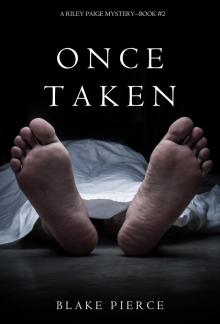 Once Taken
Once Taken Before He Envies
Before He Envies Before He Sins
Before He Sins Mackenzie White 07-Before He Sins
Mackenzie White 07-Before He Sins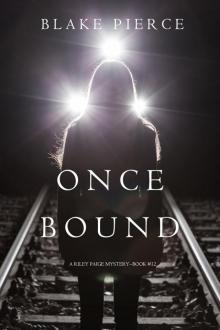 ONCE BOUND
ONCE BOUND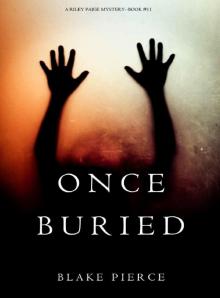 Once Buried
Once Buried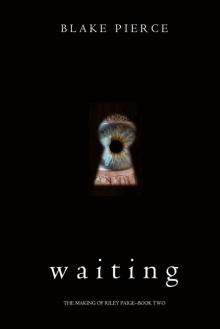 Waiting (The Making of Riley Paige—Book 2)
Waiting (The Making of Riley Paige—Book 2)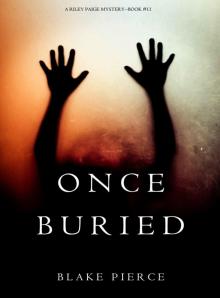 Riley Paige 11-Once Buried
Riley Paige 11-Once Buried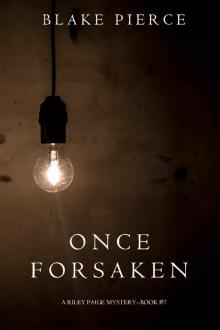 Once Forsaken (A Riley Paige Mystery—Book 7)
Once Forsaken (A Riley Paige Mystery—Book 7)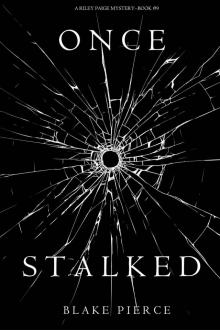 Once Stalked (A Riley Paige Mystery—Book 9)
Once Stalked (A Riley Paige Mystery—Book 9)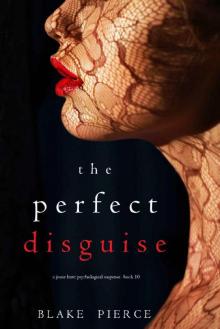 The Perfect Disguise (A Jessie Hunt Psychological Suspense Thriller—Book Ten)
The Perfect Disguise (A Jessie Hunt Psychological Suspense Thriller—Book Ten)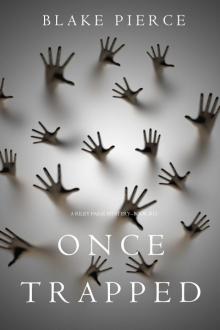 ONCE TRAPPED
ONCE TRAPPED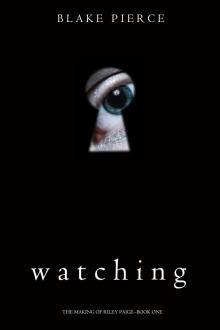 Watching
Watching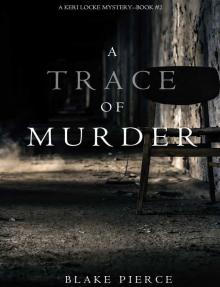 Keri Locke 02-A Trace of Muder
Keri Locke 02-A Trace of Muder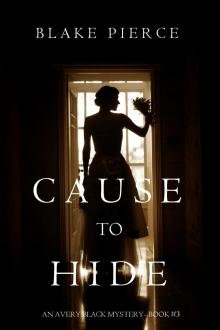 Cause to Hide
Cause to Hide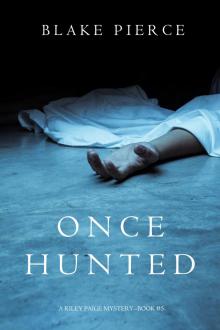 Once Hunted
Once Hunted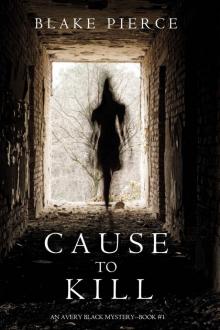 Cause to Kill (An Avery Black Mystery—Book 1)
Cause to Kill (An Avery Black Mystery—Book 1)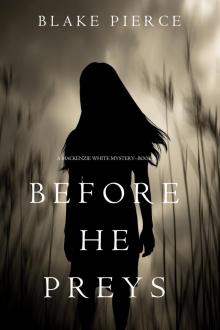 Before He Preys
Before He Preys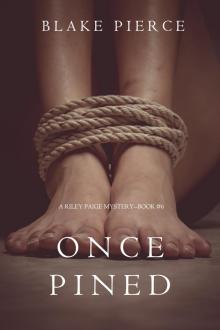 Once Pined
Once Pined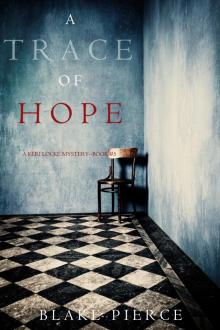 A Trace of Hope
A Trace of Hope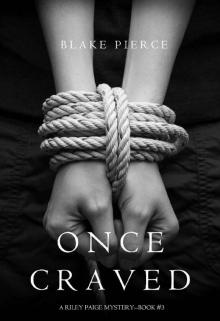 Once Craved (a Riley Paige Mystery--Book #3)
Once Craved (a Riley Paige Mystery--Book #3)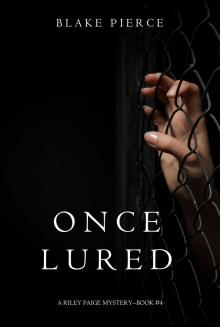 Once Lured
Once Lured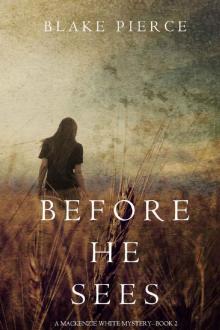 Before He Sees (A Mackenzie White Mystery—Book 2)
Before He Sees (A Mackenzie White Mystery—Book 2) Before he Kills (A Mackenzie White Mystery—Book 1)
Before he Kills (A Mackenzie White Mystery—Book 1)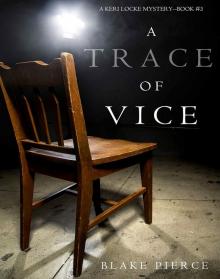 Keri Locke 03-A Trace of Vice
Keri Locke 03-A Trace of Vice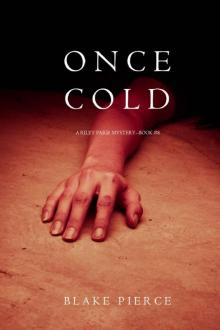 Once Cold
Once Cold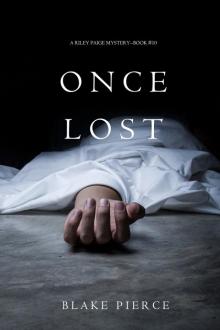 ONCE LOST
ONCE LOST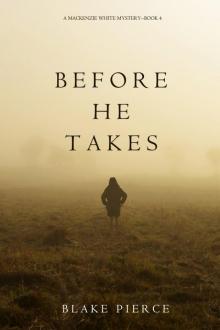 Before He Takes
Before He Takes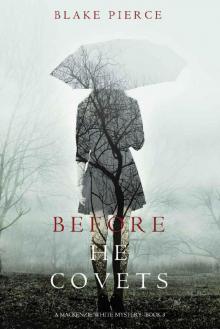 Before He Covets (A Mackenzie White Mystery—Book 3)
Before He Covets (A Mackenzie White Mystery—Book 3) BEFORE HE NEEDS
BEFORE HE NEEDS